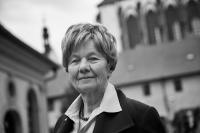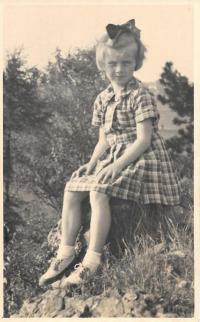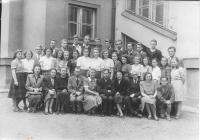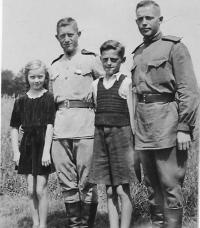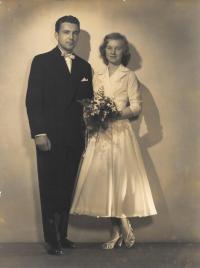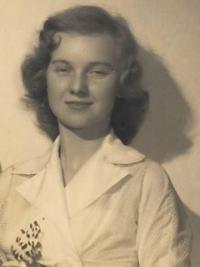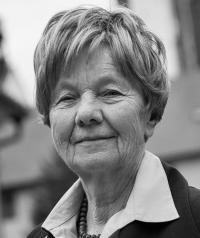One should always behave so that he does not have to feel ashamed of his conscience

Download image
Irena Podzimková, née Hornová, was born on 25 November, 1933 in Prague-Čimice. Her oldest one is the memory of mobilisation in 1938, when her father was saying good-bye. Yet a few days later he came back home. He began attending school in 1940 in Bohnice and then Kobylisy. She remembers a large lack of food during war and the fact her father used to exchange stuff for food in his native region of Polabí. And also air-raids above Prague and German military airport in Čimice, which was under attack of the aviators - tinkers. Her mother witnessed the assassination of Heydrich and the whole family was worried about her later. Irena Podzimková remembers the end of the world war, the Red Army soldiers they welcomed and German resettlement, which she witnessed with her relatives in Arnultovice near Trutnov and in Jablonec nad Nisou. She performed during the Sokol´s rally in 1948 and in the age of sixteen she started to work in her first job as an accountant. As she did not attend any schools, she continued to educate herself all her life, mainly during evening classes. She worked as a writer and an economist at the ministry of internal affairs. She got kicked out due to her husband, who was a former political prisoner, who was conditionally released from prison. Following political checks in 1958 and the birth of her son she could never work as the state officer again, not even in Prague. Moreover, in the same year her father was imprisoned in Příbram-Bytíz, where she visited him several times. Finally she got a job of a shop assistant and later could work as an accountant in several companies. She remembers the happiness from the velvet revolution and freedom after 1989.
